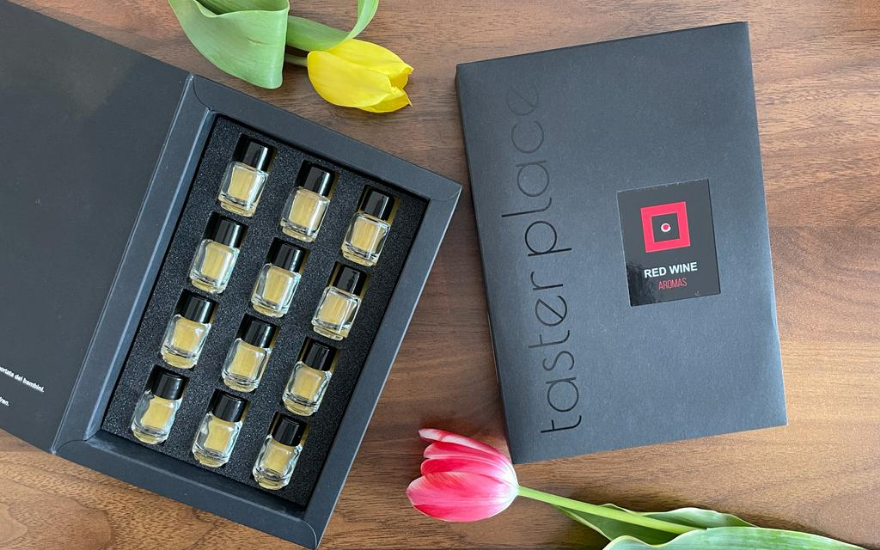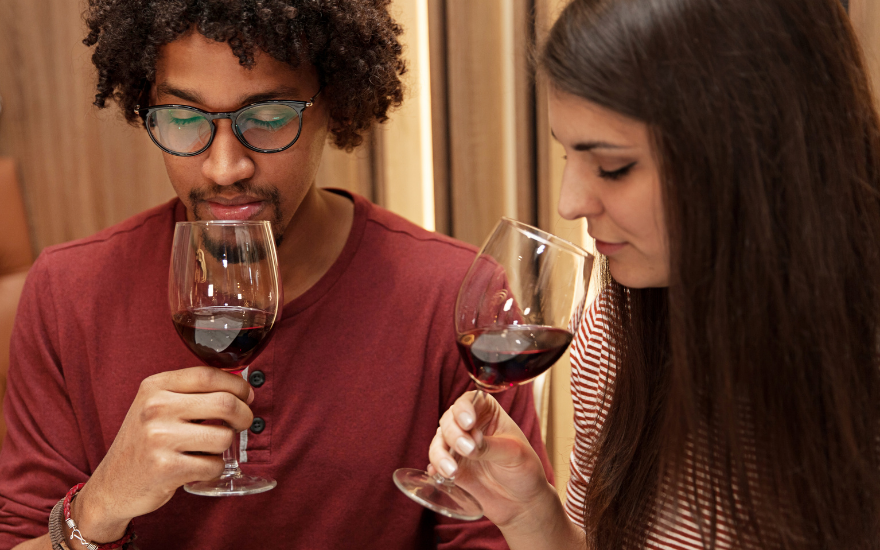[Partnership post with TasterPlace]
They say that the more you know about something, the more interesting you find it and nowhere is this more true than in the wonderful world of wine. The good news is, you can train your nose over a relatively short amount of time to pick out more complex smells in wine. The great news is, however, that any kind of smelling practice can have hugely positive effects on your wellbeing and can even help to stave off degenerative diseases like Alzheimers! Never has there been more reason to pay even more attention to what’s in your wine glass, so in this article, you will find three ways to help you do that better.
What are the benefits of smelling practice?
Last year during lockdown, we put together this piece on the benefits of certain scents on our wellbeing, such as lavender for sleep or sandalwood for focus and calm. There are also links to articles on the psychology of smell with emotion and memory as well how we can stave off Dementia with smelling practice. One study, published in the Frontiers in Human Neuroscience, also states that wine experts and those who work with olfaction-based industries such as perfume-making are less likely to develop Alzheimer's and Dementia compared to those in other professions. This is because those who train their noses in this way have ‘enhanced’, stronger or thicker parts of the brain that are tied to smell and memory. This is super important as it is these areas that are also linked to neurodegenerative diseases.
Practice picking out aromas in wine
When first getting started with wine, it all just smells like… well.. wine, doesn’t it? We go to tastings and hear the expert bang on about crunchy red fruits or stewed purple plums and think, really? Is it possible to get that specific? Suddenly though, as soon as a specific smell is mentioned then wham! You find it right there. Has this happened to you? As one of those ‘experts’, I'm here to tell you that it is not all suggestive rubbish; the more you dive in and pay attention, the more you really do ‘see’ or in this case, smell. Here are three ways you can get better at playing the wine aroma detective:
Pay attention. That’s right! Just like driving a car after doing it for years, often when we drink wine, we literally just drink it without thinking about what it tastes like. Instead, ask yourself some questions: Does the aroma jump out of the glass or is it more reserved? Does it smell very fruity and if so, what kind of fruit? Can you pinpoint it? Is it blackcurranty like Ribena or more tart like cherries? Or maybe it’s jammy like ripe strawberries? The same goes for anything that isn’t fruit. Is it herbaceous? Are there hints of spices? If so, always ask yourself what kind!
Compare and contrast. Wine on its own tastes just like wine. With two or more, however, you will be able to play spot the difference. Take two different grape varieties for example, like Pinot Noir and Cabernet Sauvignon. Compare their looks; which one is more cherry red and which is more purple black? Next, compare the aromas. Is one more like raspberry or cherry and the other like cassis? Comparison is good because it’s the differences between them that help you learn. If ever you need an excuse for that second glass of wine, this is it!
Invest in a smelling kit. One very simple and effective way to regularly boost your sniffing skills is to invest in a blind smelling kit. This way, you can test yourself a little every day and start getting very specific about the exact notes that you are picking out in your favourite glass of wine - and all without feeling obliged to pop several corks a day! Kits such as the AROMAS made by TasterPlace come with small vials of aromatic oils, each with a specific scent often found in wine. The white wine kit, for example, has twelve vials of aromas, each numbered underneath so you can test yourself again and again until you can get them all right. Learn how to spot the difference between lemon and grapefruit, pear and green apple, honey and butter - and more!
TasterPlace AROMAS collections
Italian-owned TasterPlace currently has five kits on offer: one for red wine, one for white wine, one for beer, one for olive oil and one for chocolate. There are twelve vials in each kit as well as a full tasting guide that talks you through colour and flavour as well as aromatics. The aroma samples are produced with stable aromatic solutions which means they can be used over time without losing their intensity. They come in elegant black boxes the size of a hardback book and we think they make amazing gifts for the wine lover in your life!
The AROMAS collections are on sale on TasterPlace’s website www.tasterplace.com, where you can also find a variety of information on the world of tasting and the TasterPlace blog.





